第55章 SMOLLETT(10)
His hero, a young baronet of wealth, and of a benevolent and generous temper, is crossed in love. Though not mad, he is eccentric, and commences knight-errant. Scott, and others, object to his armour, and say that, in his ordinary clothes, and with his well-filled purse, he would have been more successful in righting wrongs. Certainly, but then the comic fantasy of the armed knight arriving at the ale-house, and jangling about the rose-hung lanes among the astonished folk of town and country, would have been lost. Smollett is certainly less unsuccessful in wild fantasy, than in the ridiculous romantic scenes where the substantial phantom of Monimia disports itself. The imitation of the knight by the nautical Captain Crowe (an excellent Smollettian mariner) is entertaining, and Sir Launcelot's crusty Sancho is a pleasant variety in squires. The various forms of oppression which the knight resists are of historical interest, as also is the contested election between a rustic Tory and a smooth Ministerialist:
"sincerely attached to the Protestant succession, in detestation of a popish, an abjured, and an outlawed Pretender." The heroine, Aurelia Darrel, is more of a lady, and less of a luxury, than perhaps any other of Smollett's women. But how Smollett makes love! "Tea was called. The lovers were seated; he looked and languished; she flushed and faltered; all was doubt and delirium, fondness and flutter.""All was gas and gaiters," said the insane lover of Mrs. Nickleby, with equal delicacy and point.
Scott says that Smollett, when on a visit to Scotland, used to write his chapter of "copy" in the half-hour before the post went out. Scott was very capable of having the same thing happen to himself. "Sir Launcelot" is hurriedly, but vigorously written:
the fantasy was not understood as Smollett intended it to be, and the book is blotted, as usual, with loathsome medical details. But people in Madame du Deffand's circle used openly to discuss the same topics, to the confusion of Horace Walpole. As the hero of this book is a generous gentleman, as the most of it is kind and manly, and the humour provocative of an honest laugh, it is by no means to be despised, while the manners, if caricatured, are based on fact.
It is curious to note that in "Sir Launcelot Greaves," we find a character, Ferret, who frankly poses as a strugforlifeur. M.
Daudet's strugforlifeur had heard of Darwin. Mr. Ferret had read Hobbes, learned that man was in a state of nature, and inferred that we ought to prey upon each other, as a pike eats trout. Miss Burney, too, at Bath, about 1780, met a perfectly emancipated young "New Woman." She had read Bolingbroke and Hume, believed in nothing, and was ready to be a "Woman who Did." Our ancestors could be just as advanced as we are.
Smollett went on compiling, and supporting himself by his compilations, and those of his vassals. In 1762 he unluckily edited a paper called The Briton in the interests of Lord Bute.
The Briton was silenced by Wilkes's North Briton. Smollett lost his last patron; he fell ill; his daughter died; he travelled angrily in France and Italy. His "Travels" show the choleric nature of the man, and he was especially blamed for not admiring the Venus de Medici. Modern taste, enlightened by the works of a better period of Greek art, has come round to Smollett's opinions.
But, in his own day, he was regarded as a Vandal and a heretic.